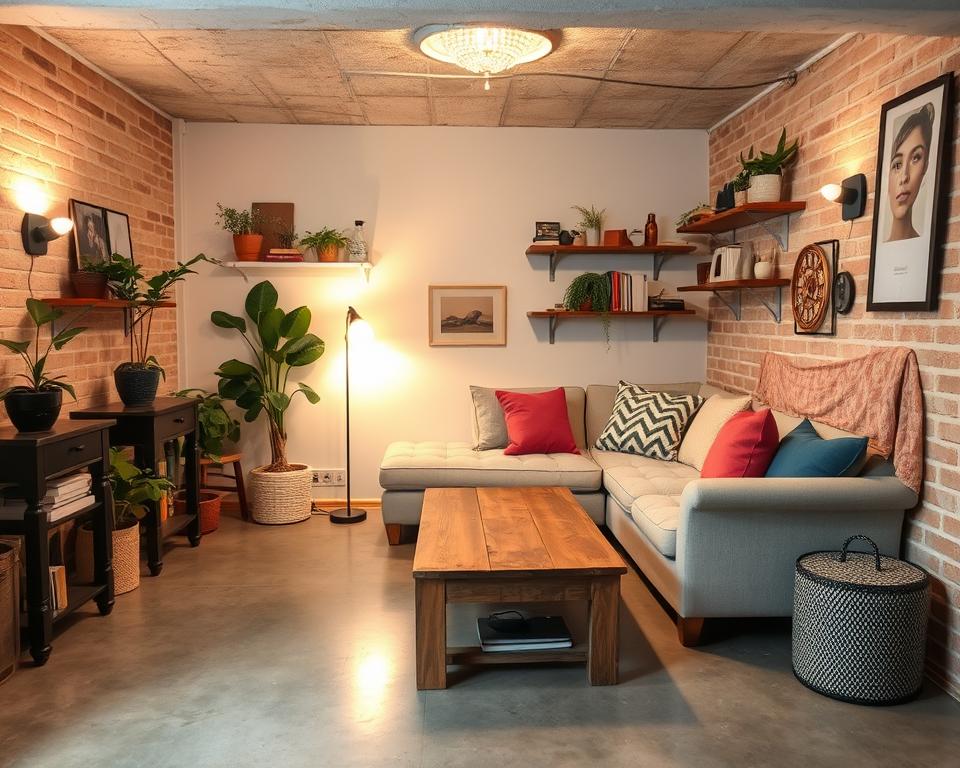The basement is not just like any part of the house, it is a different place altogether because of its special purpose and function in the house.
It serves several purposes to different people and at the same time has its generally accepted purpose why it is been built as part of an apartment.
At least, it helps some people to isolate themselves from every other person in the house, while to some it’s just a place to have fun, to others it is nothing more than just a normal part of the building. Therefore, is it illegal to rent out your basement?
No, it is not illegal to rent out your basement. However, before doing so, there are certain things you must put into consideration and there are standards you must meet before renting out your basement.
Can I Turn My Basement into a Rental?
You can turn your basement into a rental and it would turn out to yield more money. The money might grow so big depending on where the house is located, including the sole purpose of the basement and how well designed the basement is.
Moreover, there are so many things that must be settled before turning your basement into a rental.
When you decide to rent out your basement, there are so many people out there that would patronize you, but if care is not taken you might be carried away by the amount of money the basement is yielding for you as a rental, and you would tend to forget the original purpose of which the basement was built in the house.
You may also lose out on certain things you should have used or benefited from the basement when it was in your privacy which you would not be able to have access to again because you have it rented out already.
Is it Illegal to Rent Out Your Basement?
Is not illegal to rent out your basement to people, but before doing so there are certain things that must be put into consideration and these things are of utmost importance for you to be able to decide if you should rent out your basement or not. They are as follows:
- Would renting out your basement still give you enough privacy or cause you to have less privacy?
- Will renting out your basement cost you your living and storage space?
- Do you have the financial capacity to get your basement up to the required code before renting it out?
If these questions are answered positively, then you have all it takes to rent out your basement, but if not, you would need to reconsider renting out your basement.
When is it Illegal to Rent Out a Basement?
It becomes illegal to rent out your basement if the following are found wanting in the said basement. They are:
- If the basement has no egress window or exterior door as a result of fire code
- If the basement is not permitted as a living area and you rent it out for a living area
- If the basement has no certificate of occupancy (C of O)
These are some basic things that make it illegal most times for you to consider renting out your basement.
How to Legally Rent Out Your Basement
The following must be put in check before it would be legally approved for you to rent out your basement. They are:
- Check the local laws of your country to know if it is legally permitted for you to rent out your basement in your house
- Go for tax permissions in your locality
- Check the landlord’s association of where you stay and know their take in renting out the basement part of your house.
- You must ensure that you have the room prepared
- You must ensure that the basement is thoroughly fumigated
- Determine how much you would charge for the rent
- Draft out an application for rental
- You must run a background check of people you want to rent out to
These are basically necessary things to do before it would be legal for you to rent out your basement.
Requirements to Rent Out Your Basement
The following are basic requirements you must know and do before renting out your basement:
- You must have the renting laws of your locality
- You must ensure that the basement has approved fire codes and exit doors in case of a fire emergency
- You must get the basement well prepared and good for living and for safety
- You must have the basement approved as a living space if you require it to be so
- You must ensure that the basement is well fumigated
- You must know how much to charge; you can find out from the association of landlord’s in your locality to avoid issues
- You must have to draft out detailed application and requirements for intending tenants
- You must do a good background check for the intending tenants that are coming.
Pros and Cons of Renting out your Basement
The advantage of renting out your basement is that it will fetch you money while the disadvantage is that you may enter into problems if your basement is not suitable for renting.
Remember, some requirements need to be met before renting out a basement. In a situation where one rents out such space without meeting the stipulated requirements, the person may end up putting himself in more trouble.
Can I Live in my Basement and Rent out my House?
Yes, you can rent out your house and stay in your basement, but before you do so, you must ensure that you meet all the requirements stated in this article to qualify your basement to be a standard and approved living space.
Once all these are put to check, you can decide to rent out your house and be the one to stay in the basement.
Is Living in a Basement Illegal?
Living in the basement only becomes illegal when you fail to meet up to certain standards of having a basement be approved as a living area, getting approval and standard fire codes for your basement, ensuring that your basement has two exit doors in cases of fire emergencies, etc.
If these are met, then it is legal for you or anyone to live in the basement, but if these are not met then it becomes illegal for neither you nor any other person to live in the basement. You can read the legality of having a kitchen in the basement.
Final Thoughts
Having known how lucrative renting out a basement can be and what it can help you with, it is very important to follow all the required codes and legal steps to get all necessary approval before considering renting out your basement to a third party for either a storage space or having it as a living area.





